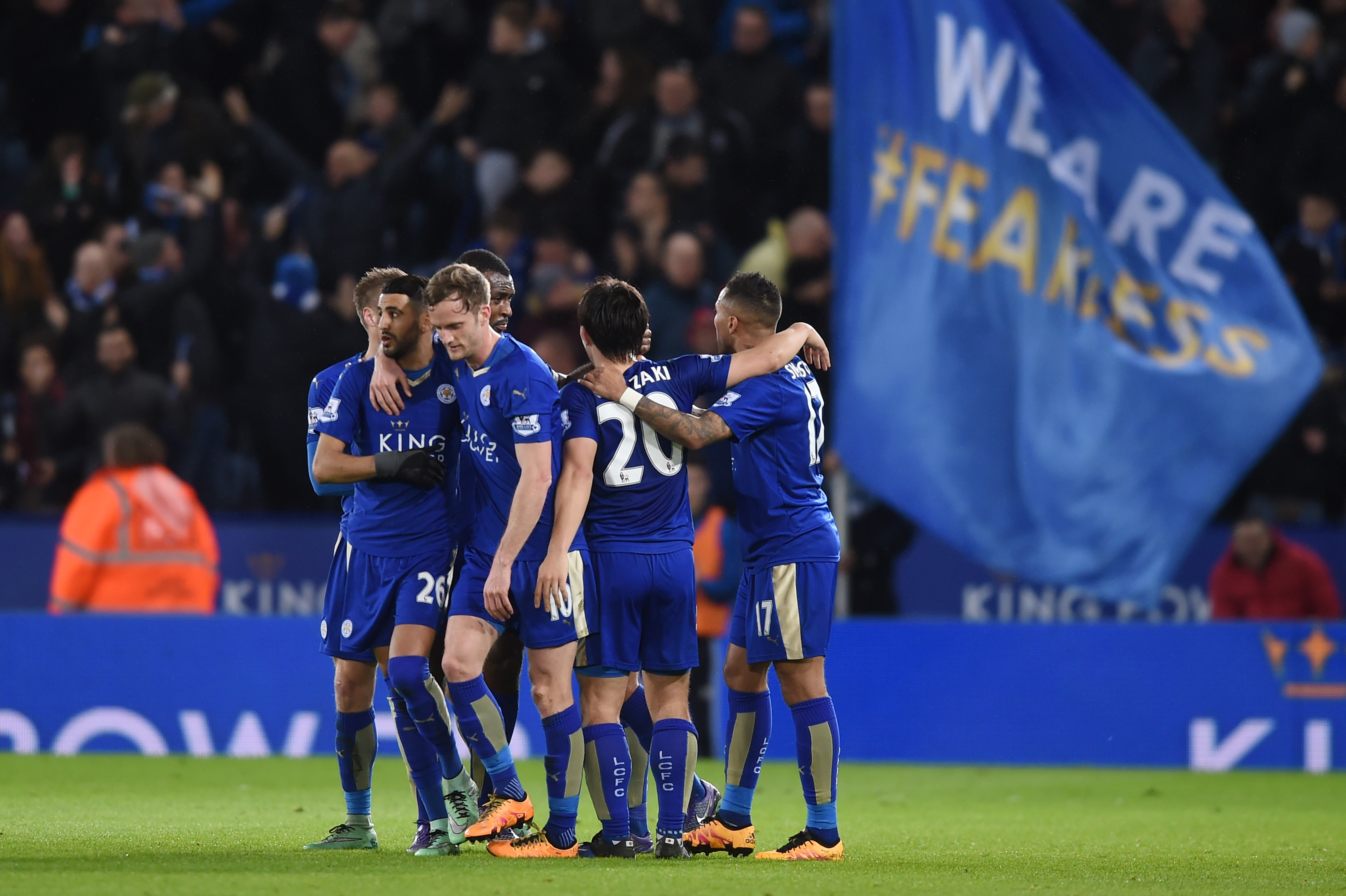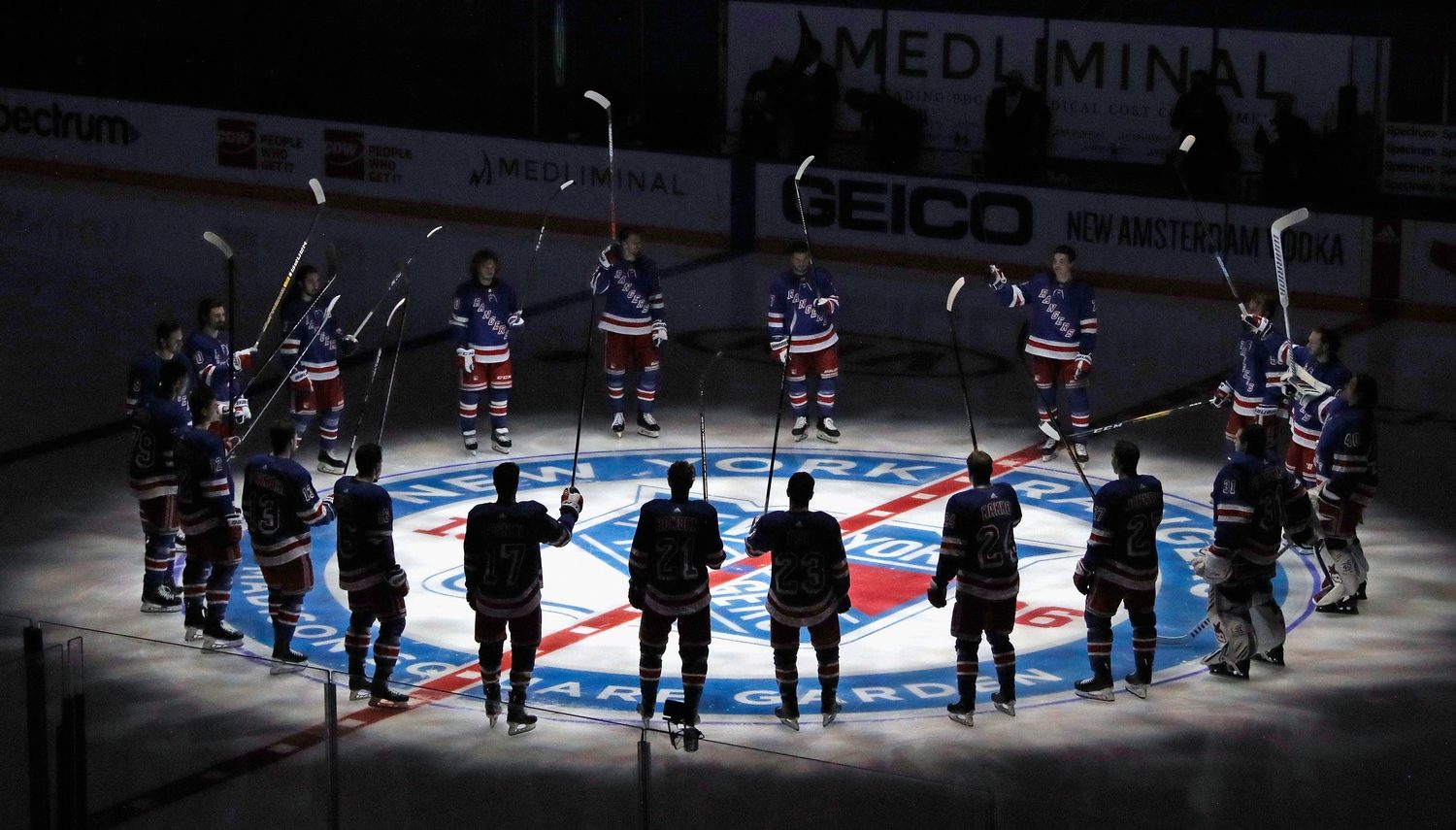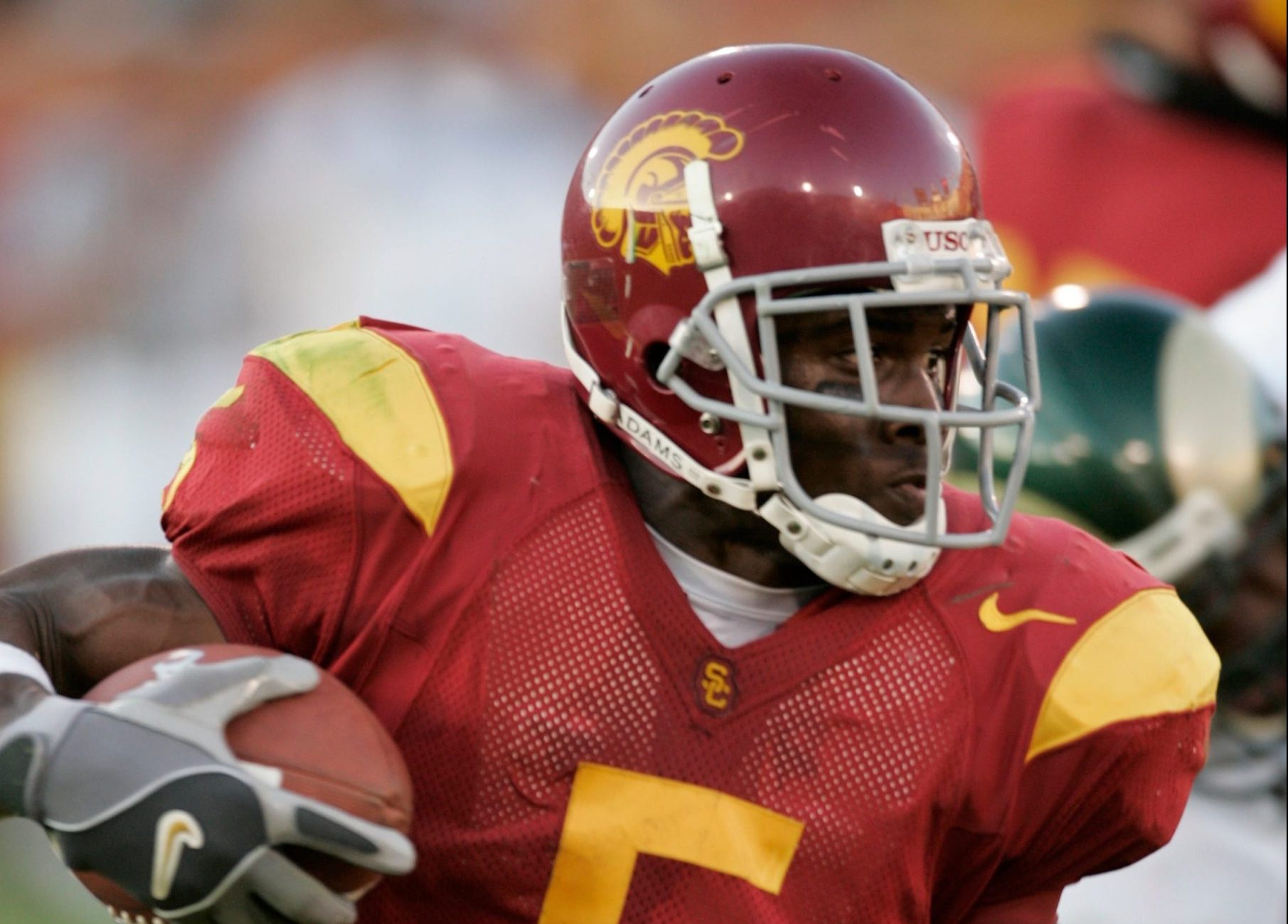Leicester City did what was thought to be impossible and became English Premier League champions. A team supposed to relegate at the end of this season, Leicester defied any and all expectations to go from the bottom of the table to the top and win their first English division title in their 132-year history.
To help fully grasp exactly what Leicester accomplished, many have tried to compare what they did to other improbable and unlikely champions. That’s very tough to do because of the uniqueness of the English Premier League among other American sports.
But in finding the most unlikely champions throughout sports, I noticed something that could explain why it’s so tough to compare anybody to Leicester City. Each of these unlikely champions have a different characteristic they displayed in their title win that when combined, matched what Leicester City had and enabled them to achieve greatness. Maybe that’s why it’s so tough to compare anybody’s championship journey to Leicester City.
Alan Kulwicki – 1992 Winston Cup Series championship
The closest non-soccer comparison you can make when it comes to Leicester City’s title run would be Alan Kulwicki winning the 1992 NASCAR Winston Cup Championship. For one thing, unlike many American sports, NASCAR didn’t have a playoff system in 1992. Like Leicester in the EPL, Kulwicki couldn’t rely on being “hot at the right time” and win the championship in the postseason. Both needed to put forth a consistent season from beginning to end if they were to hoist the trophy.
Kulwicki was an underdog in very much a similar fashion as Leicester City was. Kulwicki owned his own car and was the driver. That, plus not having a teammate and being the chief engineer on his cars, Kulwicki found himself in a disadvantage in money, information, manpower and time compared to the top teams in NASCAR at that time.
Also, entering the 1992 season, Kulwicki only had three wins in his career and his best season was in 1990 when he finished eighth in points. Utilizing consistency and limiting his troubles, Kulwicki embarked on a career year and shockingly found himself in a championship battle heading into the final race against Davey Allison and Bill Elliott in Atlanta. After points leader Allison crashed early, it was a 1-2 battle between Kulwicki and Elliott in which the champion would be the one who led the most laps.
https://youtu.be/tK4j907oeF4
By staying out longer than Elliott on his final pit stop, Kulwicki saw Elliott take the win. But because he led one more lap than Elliott, Kulwicki earned five bonus points for leading the most laps and won the championship. If Elliott had led one more lap, the two drivers would’ve been tied on points and Elliott would’ve won because he had the most wins.
Sadly, the celebration was short-lived as Kulwicki, as well as Allison, were killed in separate aircraft crashes less than eight months after that race. But for one season, the man who took the “T” off his Ford Thunderbird so it was called “Underbird” was triumphant and did things his way. That underdog spirit sounds a bit familiar to Leicester City.
New York Jets – Super Bowl III (1969)
We all know the story by now. The New York Jets from the upstart AFL were 18-point underdogs and nobody gave them a chance against one of the best teams in NFL history, the Baltimore Colts. That was until Joe Namath famously guaranteed a win for the Jets and the league. The Jets then dominated the Colts in Super Bowl III at the Orange Bowl, winning 16-7.
The game was no doubt a turning point in the NFL, in that it gave the AFL credibility after being dominated in the first two Super Bowls and showed that those teams could compete against the established NFL teams. It wasn’t overnight, but respect was eventually earned after the Kansas City Chiefs beat the Minnesota Vikings the next year and the AFL completely merged into the NFL.
What many didn’t realize was that in all actuality, the Jets weren’t that bad of a team. The Jets finished 11-3 in 1968 and had to get past great teams like the Raiders and Chiefs. The Jets’ style sure looked different than the traditional “three yards and a cloud of dust” run-heavy playing styles of NFL teams back then, but different didn’t necessarily mean bad. The Jets’ pass-first style, like many AFL teams back then, was a prototype of the modern-day offenses we see today. A different system, as well as general disrespect and ignorance from the media and old guard NFL led the Jets to be unfairly regarded as worse than they really were.
Regardless, the Jets bucked the trend by instituting a new playing style and being successful. Leicester won the Premier League by taking a different path from traditional champions. By averaging around 40% possession, Leicester were more than willing to let their opponent have the ball most of the game and strike when they were at their weakest. Both Leicester and the Jets stuck to their own system, even when it wasn’t a conventionally successful way to win a title, finishing as champions.
St. Louis Rams – Super Bowl XXXIV (2000)
As the St. Louis Rams entered the 1999 season, things couldn’t be any worse for them. Their star quarterback Trent Green was injured in the preseason and replaced by unknown backup Kurt Warner. Warner played Arena Football and stocked shelves at a supermarket in order to make ends meet and follow his dream.
The head coach, Dick Vermeil, was well respected and liked by his players, getting them to be better men as well as work together as a team. But in his respected career, he just wasn’t able to finish the job and win the Super Bowl, even after getting so close when he coached the Philadelphia Eagles to a Super Bowl XV loss against the Raiders.
In the process of the 1999 season, the Rams transformed into the legendary “Greatest Show on Turf” and rose through the ranks in a short period of time. In Super Bowl XXXIV, the Rams’ dreams were realized and their remarkable season proved successful, but it wasn’t without one final exciting moment as the Titans marched down the field. When Mike Jones tackled Kevin Dyson at the 1-yard line, preventing a possible tie, to end the game, their dreams were realized.
https://youtu.be/FKqeq7ergBs
This would be the kind of story Jamie Vardy and Claudio Ranieri would respect. Similar to Warner, Vardy worked at a steel factory as he played non-league soccer at Stocksbridge Park Steels, dreaming of becoming a Premier League superstar. And similar to Vermeil, Claudio Ranieri was much more than a coach, getting Leicester to play as a team and having fun while doing it.
If it was throwing a pizza party when Leicester got a clean sheet, to taking the team to Copenhagen, Denmark in various costumes for a Christmas party, to even skipping the clinching game to fly to Italy and visit his 96-year-old mother, Ranieri is a man similar to Vermeil. And after decades of falling just short, both got to the top of the league under similar circumstances.
James “Buster” Douglas – Undisputed Heavyweight Champion of the World (1990)
Mike Tyson began his boxing career in a way that no other person had ever seen before. Tyson scored knockouts in each of his first 19 fights, 12 of which occurred in the first round. Not only was Tyson a skilled boxer, but he made very short work of his opponents. At 37-0, Tyson had no doubt he was going to do the same thing to James “Buster” Douglas.
The fight against “Buster” Douglas was supposed to be more of a warm-up for Tyson, as the original plan was to face Evander Holyfield in a superfight for the Undisputed Heavyweight Championship of the World. Douglas, however, wasn’t interested in Tyson’s history, wasn’t afraid to stare him down and took it to Tyson early on. Douglas’ jab caused Tyson’s eye to swell and things got worse as the fight went on. In the 10th round, Douglas’ persistence got to Tyson, as he was knocked down and knocked out for the first time in his career. The “Baddest Man on the Planet” wasn’t anything but that day, as “Buster” Douglas became Heavyweight Champ.
https://youtu.be/euZ08eWV4ME
At 42-1 odds, the Tyson/Douglas fight didn’t quite have the same odds as Leicester City’s 5,000-1 odds, but both kind of modeled a similar path. Before the event, neither was expected to get anywhere close to winning. But once the event started, there were small signs that both could possibly win. As each event continued, the likelihood that both would win became more and more likely, until they eventually broke through and even caused the biggest skeptic to turn into a believer.
U.S. Men’s Olympic Hockey team – Gold medalist in 1960 and 1980
While many remember the U.S. Men’s Hockey team winning gold during the 1980 Lake Placid Olympics with the “Miracle on Ice,” a similar instance happened in the 1960 Squaw Valley Olympics. In 1960, the United States defeated Czechoslovakia and Australia in the first round. Then in the medal round, the United States had to beat powerhouses in the Soviet Union and Canada, among others. Outscoring opponents 29-11, the United States capped off their gold medal performance by winning 3-2 against the Soviet Union. This wasn’t the dominant Soviet Union team of 1980, but the seeds were planted for that dominance the United States would face 20 years later.
In 1980, things weren’t going well in the United States. Morale was rather low outside of sports and after a boycott of the 1980 Summer Olympics in Moscow, morale was pretty low inside sports as well. In hockey, the United States faced the Soviet Union in an exhibition game at Madison Square Garden and things didn’t go well for Team USA, as they were trounced 10-3 by the Soviets.
This didn’t stop the U.S. amateur players from going toe-to-toe against a Soviet Union team that ate, slept and trained hockey and were essentially professionals. Finishing 4-0-1 in the first round, the United States got to the medal round, where they would meet the Soviets for real.
Keeping up with Russia after one period, the U.S. fell behind 3-2 after the second period. But then, two goals within the first half of the third period caused the longest 10 minutes in American ice hockey history. The United States held on and won 4-3, winning a gold medal like in 1960. In the history of the Soviet Union, they won hockey gold in every Olympics except for the two the United States won in 1960 and 1980.
The United States was so successful because it really didn’t matter to them who they played; Team USA wasn’t going to be intimidated and was confident that they would play their game and win regardless of who they faced. With Leicester, they had three losses from just two teams. Arsenal won both home and away games and Liverpool beat Leicester at Anfield. Those are the only two teams who can say they defeated the champions. Whether it was Aston Villa or Manchester United, it didn’t matter as Leicester City stared their opponent down and made sure they got the result they needed in order to go home with the title.
In that way, Leicester was stubborn to let doubt creep in and think that they couldn’t win a championship because other teams were “better” than them. It’s the same reason that the United States was able to beat the Soviet Union. When you don’t believe in the doubters and believe in yourselves, great things happen.
Greece National Team – Euro 2004
Greece winning Euro 2004 is probably the most obvious parallel to Leicester City’s 2015-16 EPL triumph, and it’s not just because they were both soccer events. Greece entered Euro 2004 as a rather serious longshot. At 150-1, Greece wasn’t in Leicester territory but it faced some of the longest odds in the tournament. This was because Greece had hardly any international soccer history at that time, only qualifying for Euro 1980 and the 1994 World Cup, finishing last in both tournaments. Not to mention, Greece had the second-lowest UEFA coefficient (only Latvia was worse) and was in a group that featured hosts Portugal, Spain and Russia.
After defeating the hosts 2-1, Greece picked up a pretty big upset and a great start to the Euro, but people thought nothing of it. Then after a draw to Spain and loss to Russia, Greece unspectacularly got to the knockout stage and was still expected to go out very early. Instead, Greece hunkered down and squeezed out results against the top teams in Europe. In all three knockout stage games, including the Final, Greece won 1-0 versus France, Czech Republic and host Portugal once again in the Final.
When everyone thought they were the worst and were going to spectacularly fail, Greece held on and were eventually rewarded with a European championship. Leicester City also entered this 2015-16 season with similar expectations and outperformed everyone, including the most established teams in the competition. Both proved everybody wrong and enjoyed their moment in the sun.
When one looks back at sports’ most unlikely champions, it’s tough to merely place Leicester City with any story because it was so unlikely, even when compared to other unlikely champions. Many tried to compare the Leicester City story to another sports story but in reality, it took the characteristics of six unlikely champions to make up what Leicester City was able to do this year. From Alan Kulwicki’s underdog approach to the New York Jets’ innovative style. From the St. Louis Rams’ player and manager similarities to “Buster” Douglas’ fearlessness. From the U.S. men’s hockey team’s confidence to Greece’s similar expectations, Leicester City combined all of this into a magical season that will forever be remembered.
Next season, English soccer will more than likely go back to the status quo in which money rules the soccer world. But for the 2015-16 English Premier League season, the most unlikeliest of champions rose above and showed that every once in a while, money doesn’t necessarily buy trophies in soccer.




